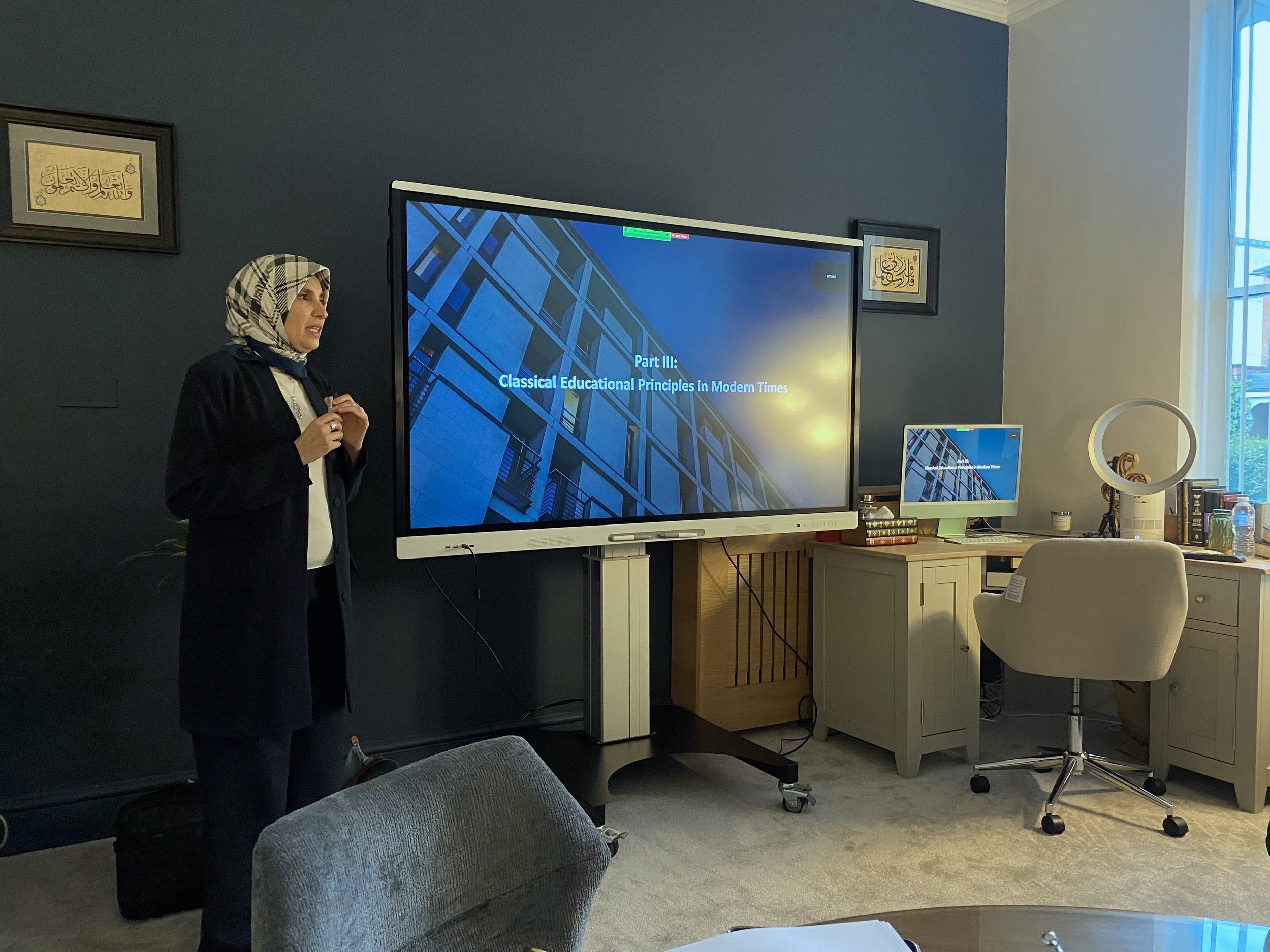
Study with us

Study with us
The Classical Institute experts help to train educators, academics, researchers and advanced students in the field of Islamic Studies. TCI offers comprehensive and tailored training programs, in a one-to-one or a small group setting, designed to equip participants with the tools required to contribute meaningfully to their educational and scholarly communities. TCI provides ongoing mentorship and support, ensuring that participants promote with confidence an accurate and nuanced understanding of Islamic heritage in their respective roles.
The Classical Institue offers a specialised training service for educators, designed to enhance their teaching practices and deepen their knowledge in the field of Islamic Studies. This service aims to provide educators with the pedagogical skills, scholarly resources and academic support necessary to excel in their roles and positively impact their students. TCI facilitates connections with other educators too, providing a platform for sharing best practices, collaboration and professional support.
TCI’s expert training service for academics and researchers provides a comprehensive framework for enhancing research capabilities and academic writing. Detailed guidance is provided on advanced research methodologies, including hermeneutical approaches specific to Islamic Studies. Training regarding academic writing includes guidance on peer review processes, journal selection and publication strategies.
TCI offers specialised training for advanced students, focusing on complex aspects of Arabic language and literature, as well as wider Islamic sciences, including Quran studies and Classical Islamic Theology. This service aims to provide advanced students with an in-depth understanding of these fields, enhancing their analytical, research, and interpretive skills.
TCI offers in-depth study and critical appreciation of seminal works in Classical Arabic literature, such as pre-Islamic poetry and belles-lettres, including the rhetorical and stylistic devices used in these texts. Advanced study of linguistics includes a focus on syntax (nahw), morphology (sarf), and semantics (balagha), as well as a lexicographical study of Classical Arabic dictionaries to enhance understanding of the historical development of the Arabic language and its lexical richness.
With respect to wider Islamic traditions, expert training provided in Quranic studies focuses on various methodological approaches and hermeneutic frameworks. Advanced studies of Classical Islamic theology cover rational, semi-rational and traditionalist approaches espoused by, amongst others, the Mutazilites, Asharites and Hanbalites respectively.



